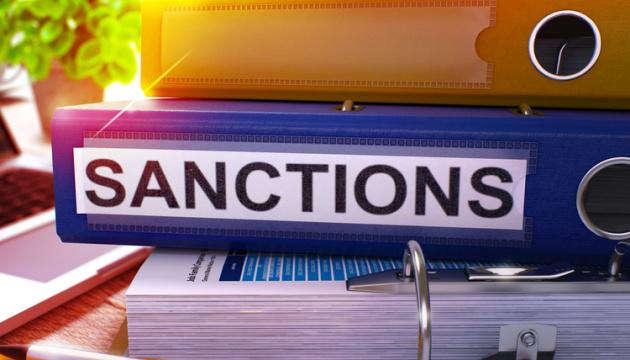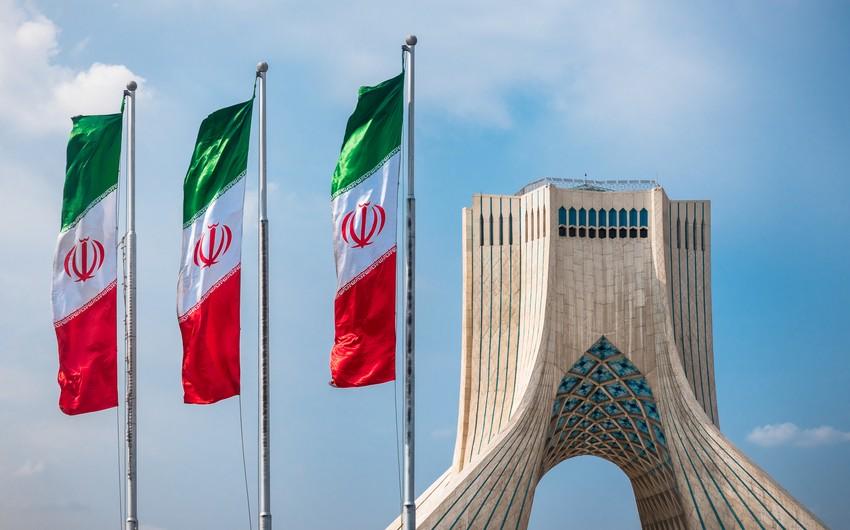Iran: Social protests amid sanctions
Analysis by Maxim Petrov
ANALYTICS 21 June 2022 - 12:03
| Maxim Petrov Caliber.Az |
"The fact that sanctions are not working very well is evident in Iran. Oil is produced, planes fly, and the economy works and strengthens. Sanctions achieve only one goal: to make the lives of ordinary people somewhat less comfortable. In addition, sanctions, even though they cause a deterioration in the quality of life, they provoke public anger toward those who imposed them, and they only bring the population together around the government."
Many of us have heard this opinion. It is wrong.
Iran exports about 700,000 barrels of oil a day, whereas it is capable of exporting 3-4 million. Having huge, world's second-largest gas reserves, Iran is not exporting too much "blue fuel" because it does not have the necessary technology and capital to implement it. It has no access to modern technologies and international investments because of sanctions. At the same time, the cost of Iranian oil is about twice as high as in Russia because of outdated technologies, and there are no new ones to be found. An important detail: in the past about 40 per cent of Iran's social expenditures were paid for by oil exports. As a result, up to 65 per cent of the country's population lives at or below the poverty line. Iran's civil aviation is worn out and its use is fraught with risk. But most importantly, Iran is dying - it is about nature, about the country's ecology.
The government is forced to develop import substitution in industry and agriculture, including moisture-intensive crops. This happens because it is deprived of the opportunity to export goods in the necessary volumes, therefore it is cut off from sources of currency and cannot buy what it needs from abroad. In addition, because of sanctions, many companies do not want to deal with Iran or refuse to trade with it directly. Illegal or semi-legal trade is organised by the Iranian Revolutionary Guard Corps (IRGC), the core of the country's political and economic system, with IRGC agents charging for their services by helping to build complex supply chains through third countries and companies. All together, imports become more expensive or impossible, reducing the benefits from it.

Therefore, the Iranian government, in order to avoid hunger and shortages of consumer goods, is obliged to develop the economy on its own. This is called the "economy of resistance". Because of it, the withdrawal of water from rivers and underground sources is increasing. This process, along with other factors (traditional water problems, incompetent management of officials associated with the IRGC) has caused Iran to turn into a desert. Its two most full-flowing rivers, Karoun and Zayanderud, dried up last summer, the cities of Ahvaz and Isfahan experienced water problems and mass protests (the government suppressed them using weapons), and in all, about a third of Iranians, 28 million people, suffer from water problems.
Thus, the result of the sanctions and import substitution policy was monstrous water, social and environmental disaster: the country is turning into a desert. This circumstance has led to mass protests, which the government regularly suppresses.
Moreover, under sanctions, the question inevitably arises of who will replace international technology companies in drilling, engineering, high-speed trains, or aeroplanes?
China has been making enormous efforts in recent years and spending billions of dollars to fill the gaps in the economy, such as semiconductors, jet turbines, certain types of high-speed bearings, etc. The reason for this import substitution policy is that the Chinese are afraid of sanctions and want to reduce dependence in these areas. But even Beijing has not yet succeeded in this matter and self-sufficiency of the Chinese economy is out of the question, while it is 10 times larger than Russian and 75 times larger than Iranian, and has incomparably large labour and scientific-industrial resources.
Under sanctions, some products and types of products are impossible to obtain in principle, and they disappear. Others are restructuring their logistics chains, which significantly increases the cost of production, which, in turn, may lead to a drop in sales and the curtailment of some production facilities, etc. Iran has huge natural resources and no less huge intellectual resources, as well as a relatively cheap labour force. If the country were to open up, all of this together would probably lead to rapid economic growth. But under current conditions, i.e., under comprehensive sanctions (although there are other factors that create economic problems), most Iranians have become poor.
Rising prices, especially for food (inflation reaches 40 per cent according to official data, but the real figures, according to the opposition, are much higher) is, along with the water problem, another factor causing mass protests.
It is true that the Iranians have managed, through the development of import substitution, to somewhat reduce unemployment in recent years. However, due to the lack of funds, the government has resorted to a neoliberal policy - some enterprises are privatised, while the situation of workers is worsening and they are faced with temporary, part-time employment, with worsened working conditions. This is the third factor that leads to growing social contradictions and strikes of the working class, teachers, nurses, and others.

It can be said that large-scale sanctions over the years plunge the country into a state of catastrophe or close to it. Desertification and water scarcity, rising prices for food and other goods, as well as the deterioration of the situation of workers in the workplace - are the three main factors causing spontaneous riots, mass protests, and strikes in Iran. All three factors are directly or indirectly related to international sanctions, although not only to them.
The examples of Iran, as well as Venezuela and the former Yugoslavia, demonstrate the fallacy of the assumption that sanctions cause public anger only in relation to external forces and rally the population around the government. Nothing like that. Even if this happens for a while, then anger against the government begins to grow. Sanctions became one of the reasons for the decline in the quality of life in former Yugoslavia and led to the so-called "bulldozer revolution" and to regime change - to the removal of Slobodan Milosevic in 2000. This has not happened in Iran yet, but the country is literally in the mouth of a volcano due to frequent protests, riots, and strikes.
Caliber.Az
|
1
|
Critical F-35 upgrade deferred, 2024 production slashed by 27-50%
01 May 2024 - 09:05
|
|
2
|
Armenian Church sparks controversy amid handover of villages to Azerbaijan Unrest & dissent in Armenia
30 April 2024 - 18:02
|
|
3
|
Mr Fouks - the servant of too many masters How much does the reputation cost?
29 April 2024 - 17:15
|
|
4
|
French journalist's hunger strike in Yerevan airport over politically driven entry ban Why are Armenia's friends silent?
29 April 2024 - 12:41
|
|
5
|
Azerbaijan - key player in Europe's energy security EU Reporter article
29 April 2024 - 13:32
|
Official: Italy renders assistance to protect infrastructure in Caspian Sea
02 May 2024 - 19:46
OPEC+ could extend oil cuts, formal talks yet to start
02 May 2024 - 19:29
Armenia, Ukraine discuss situation in South Caucasus
02 May 2024 - 19:20
ADB rep: COP29 to help advance Central Asia's climate change action
02 May 2024 - 19:12
Yerevan, Washington discuss military cooperation
02 May 2024 - 18:55
Iran announces sanctions on several figures, entities in US, UK
02 May 2024 - 18:39
Azerbaijani top diplomat, Russian presidential special rep mull cooperation, regional developments
02 May 2024 - 18:29
Chairman: Azerbaijan pays great attention to tourism sector development
02 May 2024 - 18:21
ICESCO chief hails Azerbaijan's leadership in promoting intercultural dialogue, peace
02 May 2024 - 18:15
Armenian PM: Police must be entitled to use force
02 May 2024 - 18:03
Media: RKK/YPG terrorists forcibly recruit children
02 May 2024 - 17:48
EU aid to Armenia stalled as Hungary pushes for Azerbaijan's inclusion
Geopolitical tensions revealed02 May 2024 - 17:41
Vardanyan's nomination and devaluation of Nobel Peace Prize
Martin Sherman's article02 May 2024 - 17:30
Turkish authorities take down organized crime syndicate in Operation Mahzen-36
VIDEO02 May 2024 - 17:14
Azerbaijan, Uzbekistan discuss new format of business ties
02 May 2024 - 17:00
Israel's showdown in Rafah: Defying pressure, determined to dismantle Hamas
Caliber.Az on YouTube02 May 2024 - 16:50
Envoy: EU pleased to see progress in Azerbaijan-Armenia border delimitation
02 May 2024 - 16:44
CEC chairman: Azerbaijan considers postponing parliamentary elections due to COP29
02 May 2024 - 16:38
Türkiye destroys over 800 terrorists in 2024
VIDEO02 May 2024 - 16:28
World religious leaders adopt Shusha Declaration
02 May 2024 - 16:15
Azerbaijan reduces discount rate amid downtrend in global economy
Central Bank takes action02 May 2024 - 16:13
Azerbaijan contributes to climate change action, President Aliyev says
A meeting with UN official Charles Hart02 May 2024 - 15:57
Turkic peoples' crucial role in bridging East-West spotlighted at forum
02 May 2024 - 15:39
EU ready to collaborate with Azerbaijan on climate initiatives for COP29 chairmanship
02 May 2024 - 15:22
Armenian government closes national center for innovation and entrepreneurship due to funding shortfall
02 May 2024 - 15:04
Western Azerbaijan Community denounces biased US report
Urges Congress to abandon pressure on Azerbaijan02 May 2024 - 14:49
France losing its credibility
Article by The Guardian02 May 2024 - 14:32
US warns Georgia about undermining bilateral relations
02 May 2024 - 14:23
Armenian protest movement picketing government, calls for halt to border delimitation
02 May 2024 - 14:17
Armenian opposition, church heighten tensions amid border delimitation talks
Pashinyan navigates political turbulence02 May 2024 - 14:10
Deputy SG emphasizes OTS as crucial for bolstering economic cooperation among Turkic states
02 May 2024 - 14:02
President: Colombia to break diplomatic relations with Israel over war in Gaza
02 May 2024 - 13:47
Middle Corridor important in diversifying supply both regionally and globally, says WTO rep
02 May 2024 - 13:32
Azerbaijani president meets Russian delegation to discuss bilateral relations
02 May 2024 - 13:18
Philippines and China at loggerheads in the South China Sea
Masks off02 May 2024 - 13:10
Israel rejects US proposal related to Saudi Arabia
02 May 2024 - 13:02
US official urges China, Russia to ensure human decision-making in nuclear deployments
Not AI02 May 2024 - 12:49
Turning point for Georgia - Foreign Agents Law
Georgian experts’ views for Caliber.Az02 May 2024 - 12:40
South Korea mulls participation in AUKUS
02 May 2024 - 12:35
BP seeks approval for hydrogen plant
02 May 2024 - 12:20
